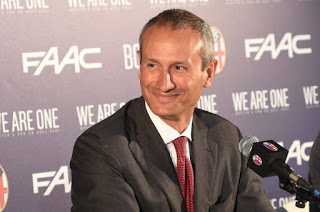
Or perhaps the word is legacy: a word that looks to the future rather than the past. What does the road ahead look like now that South Africa’s leading access automation manufacturer is part of the largest access automation brand in the world? Who exactly is this powerful multinational machine that has its roots in 1960s Italy and today, half a century later, has branches all over the world?
One thing is certain: when European flair meets African strength and endurance, it’s pure magic.
In this exclusive interview, FAAC Group Business Unit Director Jacopo Malacarnetells us more about what the future holds.
Charl Mijnhardt: FAAC has been around for a great many years. What would you say is the secret recipe that has enabled it to withstand the test of time?
Jacopo Malacarne: FAAC SpA was founded in 1965, or 51 years ago, by a stroke of genius of Mr Giuseppe Manini. At the time, the Italian economy was growing very quickly, companies were founded, new products and services were offered for the first time and families were looking for a better life style and convenience. Of all those newly-born companies, not all followed the growth strategy of FAAC, some of them later disappeared, and therefore FAAC must have really had some positives in its value proposition. I would say a) the capacity to attract talents and motivate people around the founder b) steer from a family-owned company into a professionally-structured company with clear skills and responsibilities c) technical intellectual curiosity that paved the way to multiple patents for new state-of-the-art mechanical and electronic solutions d) a sense of pride.
CM: That’s quite a story. If you could give us the “executive summary” of what FAAC’s core business is, what would it be?
JM: FAAC was indeed born as the first national manufacturer of slide and swing gate openers for residential applications. Slowly, over the decades the business scope expanded to include vehicular and pedestrian access control solutions in commercial and industrial applications. As far as vehicles are concerned, automatic barriers, motorways barriers, industrial doors, fast rolling doors, automatic retractable bollards were all developed internally over the years. For pedestrian use, it is worth mentioning the development of swing and slide automatic doors, innovative complete automatic doors, hospital doors as well as software-based hands-free or tag-based access control solutions.
CM: What was the main driver that led to the decision to acquire CENTURION, a South African manufacturer?
JM: We recognised some time ago that, as an international company with more than 24 commercial subsidiaries worldwide and the necessity to diversify revenue generation, FAAC was not present enough on the African continent. We should either have developed a tailor-made product offer for such a continent, and later have built a commercial presence, or we were to acquire a local successful company. Our first thought was of CENTURION who, before developing into an independent manufacturer, was a customer of FAAC’s in the early ‘80s. CENTURION has, since then, become the clear market leader not only in South Africa but also on the African continent below the Saharan belt. The match was perfect, in other words.
CM: Are you expecting to bring any new products into the African market? Are there solutions that could be a good fit for this market?
JM: Yes, we believe that certain selected products may be brought to South Africa and the surrounding countries and distributed by Centurion Systems. FAAC has developed for other markets’ needs a full complement of security-related vehicle access control solutions; automatic bollards, of different sizes, crash-rated automatic bollards, for counter-terrorism purposes, capable of stopping a 7.5 tonne truck driving at 30mph (48kph) or 50mph (80kph) are fully available to CENTURION. Additionally, high-performance barriers are now available for sale to Africa.
CM: What about taking South African products to new markets? Do you foresee CENTURION growing its footprint internationally?
JM: The exercise is two-fold . Some products by CENTURION may indeed be distributed by the FAAC sales network in selected countries. We are studying this at the moment and the results will soon be effective. We also want to offer CENTURION FAAC’s technological competence and off-the-shelf solutions to short-cut development processes to embark on as well as access to international subsidiaries to fasten its commercial development outside South Africa.
CM: What are the main benefits of two “superpowers” like CENTURION and FAAC joining forces?
JM: An enriched product offering to meet larger customer base demand, stronger technological competencies and skills in mechanical and electronic design and manufacturing, economies of scale in managing the supply chain, wider commercial network to channel FAAC and CENTURION products.
CM: Do you foresee any challenges? What are they?
JM: Acquisitions in general may change the scenario for the companies involved: market, customers, products and sometimes people. Change, per se, is not loved by everybody, some fear negative consequences more than the future benefits discussed above. In our case it is different. Relying on apopular saying from the world of sports, “a winning team, like CENTURION, is never changed”. The challenge therefore is to communicate effectively to CENTURION employees, suppliers and customers that the acquisition by FAAC, in our very specific case, not only will maintain the business scenario as before, but will only enhance and accelerate CENTURION’s future growth opportunities.
Want to know more about the FAAC acquisition? Check out this interview in Hi-tech Security Solutions.





